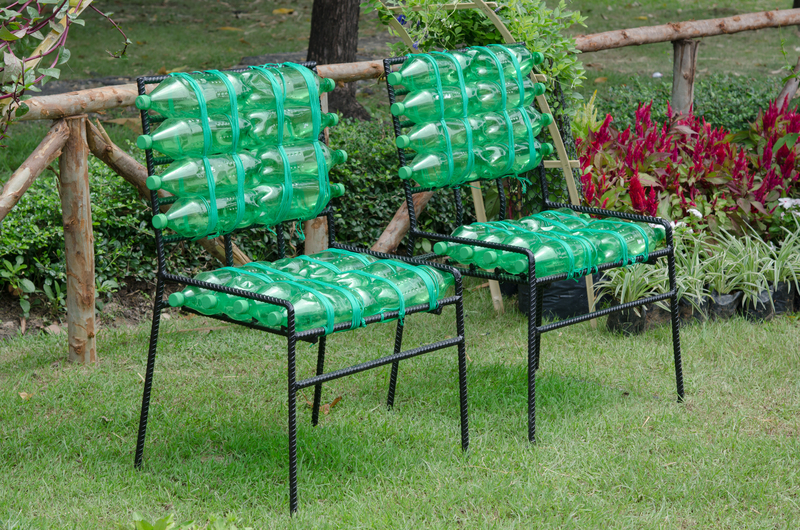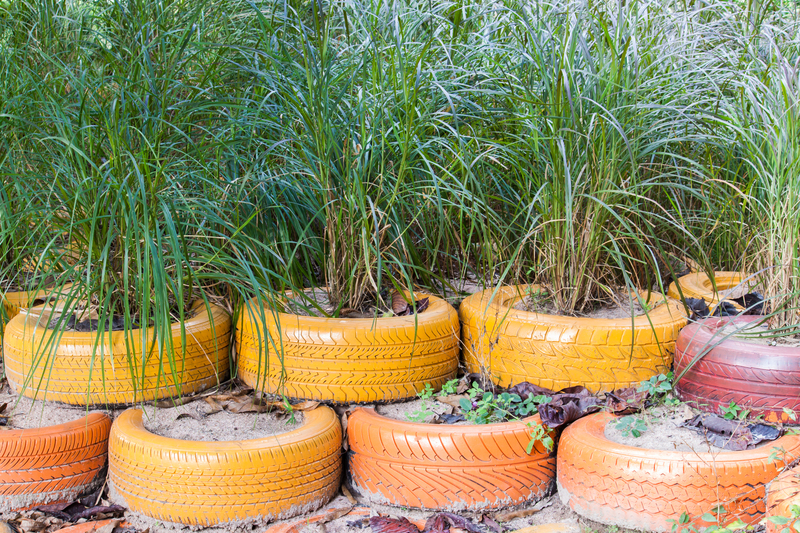Transform Your Recycling Habits with These Top Home Strategies
Want to make a real difference for the environment right from your own home? Transforming your recycling habits is an impactful, accessible way to contribute. This comprehensive guide will take you through the most effective home recycling strategies and offer expert tips for improving your recycling routine today.
Understanding the Importance of Sustainable Home Recycling
Recycling at home isn't just a personal responsibility--it's a global necessity. With landfills overflowing and natural resources dwindling, even the smallest changes in consumer habits can have a big effect. In this article, we'll show you how to enhance your recycling routine, minimize waste, and develop new eco-friendly habits that make sustainability second nature.
Why Should You Rethink Your Household Recycling?
- Reduces landfill waste: Every recyclable kept out of the trash conserves landfill space.
- Protects the environment: Less waste means less pollution, safeguarding wildlife and ecosystems.
- Saves energy and resources: Reusing materials cuts down on extraction and manufacturing requirements.
- Supports the local economy: Recycling supplies local industries with valuable materials.
_If you're ready to take your recycling habits to the next level, the following strategies are the perfect starting point._

Top Home Recycling Strategies for a Greener Lifestyle
1. Set Up an Organized Recycling Station
The foundation of effective home recycling is a well-designed recycling station. By keeping recycling bins or containers clearly labeled and easily accessible, you'll reinforce the habit for all household members.
- Use separate bins: Clearly mark containers for paper, plastics, metals, glass, and organic waste.
- Place bins strategically: Position them near high-waste areas like the kitchen, office, and garage.
- Consider color coding: Visual cues make sorting faster and easier.
_Regularly empty and clean your bins to avoid odors and prevent contamination of recyclables._
2. Educate Yourself (and Family) on Local Recycling Rules
Recycling guidelines differ depending on your city or region. Misunderstanding what can and can't be recycled often leads to "wishcycling"--tossing questionable items in the bin, hoping they'll be recycled.
- Check your municipality's website for the accepted items and preparation rules.
- Get printable guides and display them near your home recycling station.
- Teach your children and roommates about local requirements to ensure everyone recycles correctly.
_Sticking to local rules boosts recycling rates and prevents contamination that can ruin whole batches of recyclables._
3. Reduce and Reuse Before Recycling
Remember the waste hierarchy: Reduce and reuse come before recycling. Cutting down waste at the source is the most effective way to shrink your environmental footprint.
- Buy in bulk or with minimal packaging to reduce single-use containers.
- Repurpose glass jars, tins, or plastic tubs for storage, organization, or crafts.
- Opt for reusable bags, bottles, and utensils to minimize disposable waste.
_Underlining_ the importance of prevention helps you avoid creating more recyclables than necessary.
4. Clean and Prepare Recyclables the Right Way
Recyclables contaminated with food, grease, or chemical residues may be rejected by recycling facilities. Ensuring your items are clean and dry is an essential step in successful recycling at home.
- Rinse out containers to remove ketchup, sauce, or other residues.
- Let glass and plastic items dry before tossing them in the bin.
- Remove caps, lids, or pumps unless your program specifies they're recyclable.
_Proper preparation protects the entire recycling stream and maximizes what gets reprocessed._
5. Know What NOT to Recycle
Not all materials are recyclable in residential programs. Throwing the wrong items in the bin (a practice called contamination) can undo your hard work.
- Plastic bags, film, and wrappers: Usually not accepted in curbside recycling but can go to grocery drop-off bins.
- Styrofoam, takeout containers, and greasy pizza boxes: These often end up in the trash unless your local program says otherwise.
- Batteries and electronics: Recycle at dedicated e-waste collection sites.
- Hazardous waste (paints, chemicals): Requires special handling--check your city's hazardous waste program.
_If unsure, it's better to double-check than risk contaminating an entire load!_
The Secrets to Adopting Long-Term Recycling Habits
Make Recycling Part of Your Family Routine
Turning eco-friendly recycling habits at home into daily routines is the key to lasting change. Involve everyone in your household, and make sustainability a shared mission.
- Assign recycling tasks for kids or roommates to build responsibility.
- Create friendly challenges to see who can reduce the most waste each month.
- Celebrate milestones (e.g., amount of waste diverted from landfill) to stay motivated.
_Making sustainability fun encourages everyone to stick with new behaviors long term._
Track Your Recycling Progress
Recording and reviewing your household's recycling performance is a great motivator. You might notice room for improvement or spot patterns in your waste production.
- Record the volume or weight of materials placed in recycling each week.
- Use apps or spreadsheets to track and visualize your progress.
- Set ambitious, but realistic goals to challenge your household to recycle more and waste less.
_Seeing tangible results reinforces your commitment to better recycling at home._
Stay Informed and Get Involved
Solid waste policies, recycled product markets, and the list of accepted items can change. Staying aware helps you maintain the most effective recycling habits at home.
- Sign up for updates from your local waste authority or recycling center.
- Attend workshops, webinars, or community events devoted to sustainability.
- Engage with neighbors and schools to promote a wider culture of recycling.
_Community involvement magnifies your individual efforts and leads to broader change._
Advanced Strategies: Taking Home Recycling to the Next Level
Composting: The Ultimate Form of Organic Recycling
Want to massively reduce your kitchen and yard waste? Composting at home transforms organic scraps--like vegetable peels, coffee grounds, and leaves--into valuable fertilizer for your garden.
- Set aside a compost bin in your kitchen or yard for food and plant waste.
- Aim for a good balance of "greens" (nitrogen-rich) and "browns" (carbon-rich) materials.
- Keep the pile aerated and moist to speed up decomposition and prevent odor.
_Composting significantly reduces the amount of trash your household sends to landfill and restores nutrients to local soils._
Recycling Beyond the Bin: Hard-to-Recycle Items
Some household products aren't suitable for curbside recycling but can still be responsibly disposed of through special programs.
- Textiles, clothing, and shoes: Donate to thrift stores, textile banks, or upcycle into rags.
- Electronics and batteries: Use dedicated drop-off events or store-based collection programs.
- Light bulbs, appliances, and furniture: Seek local repair, resale, or deconstruction options.
_Research local resources so these items avoid the landfill and contribute to the circular economy._
Support Markets for Recycled Products
The economics of recycling only work if there's demand for recycled materials.
- Buy products made from recycled content: From notebooks to plastic containers, check the label before you buy.
- Choose refillable, reusable items whenever possible to avoid single-use packaging.
- Advocate for sustainable brands that prioritize eco-friendly packaging and recycling initiatives.
_Your purchasing power shapes the market and encourages more companies to go green._

Common Home Recycling Mistakes to Avoid
- Bagging recyclables in plastic bags: Most curbside programs can't process bagged materials--always empty them loose into the bin.
- Wishcycling: Only place accepted items in your bin; hoping for the best contaminates the recycling stream.
- Neglecting to clean containers: Food residue can cause loads of recyclables to be rejected.
- Ignoring local guidelines: Check regularly for updates, as recycling rules can change.
_Learn from these common errors to optimize your home recycling system._
Conclusion: Start Transforming Your Recycling Habits Today
Developing effective recycling habits at home is an ongoing journey rather than a single action. By implementing the strategies outlined above, you'll turn recycling into a seamless, rewarding part of your daily routine.
Ready to transform your home recycling? Commit to one or two new strategies this week--whether it's setting up a dedicated recycling station, clarifying your local guidelines, launching composting, or tracking your progress. Each small step adds up to a more sustainable lifestyle and a healthier planet for everyone.
Start today: Review your current recycling practices, adjust your setup, and get the whole family involved. _The path to better recycling begins right at home!_
Resources for Further Reading:
By transforming your recycling habits today, you're making a lasting investment in tomorrow's environment. Happy recycling!